Description
ABSTRACT
Power Asymmetry and the Quest for Inclusiveness in the Workplace
Ogbole O Ogancha*
This paper espouses the concept of bargaining power in the context of contract of employment. It also examined the power asymmetry between the parties to contract of employment as well as the factors that influence or tilts bargaining power, the redistribution of power through strike actions and enhancement of workers’ participation in the governance of the workplace through industrial democracy so as to forestall or limit disputes which often culminate in incessant strike actions. As between the employer and employee, the paper posits that equality is a legal fiction, and the main object of labour law is to bridge inequality in employeremployee relationship. By demonstrating how power imbalance in the workplace impacts on trade disputes as well as the rate of strike actions, this paper recommends, the enactment of appropriate legislation to check the undue exercise of bargaining superiority, and engender workers’ participation in the governance of the workplace.
INTRODUCTION
Society as a whole is splitting up into two great hostile camps or classes directly facing each other bourgeoisie and proletariat.1 Even though the bourgeoisie and proletariat (which qualify as employer and employee) have a community of interests in the prosperity of their industry (at least theoretically),2 the interest of one side lies in profits, and that of the other side in wages.3
Keywords: Bargaining power, Contract of employment, Strike actions, Industrial democracy.
* LLM (Ife), BL, ACIS. Principal Partner, Ogbole & Partners (Legal Practitioners), Jos, Plateau State, Nigeria. Doctoral Student, Faculty of Law, University of Jos, Nigeria. Email: og*******@***oo.com.
- Karl Marx and Friedrich Engels, Communist Manifesto (Progress Publishers 1967) 41.
- Akintunde Emiola, Nigerian Labour Law (4th edn, Emiola (Publishers) Limited 2008) 575.
- Emeka Chianu, Employment Law (1st edn, Bemicov Publishers (Nigeria) Ltd 2004) 252.

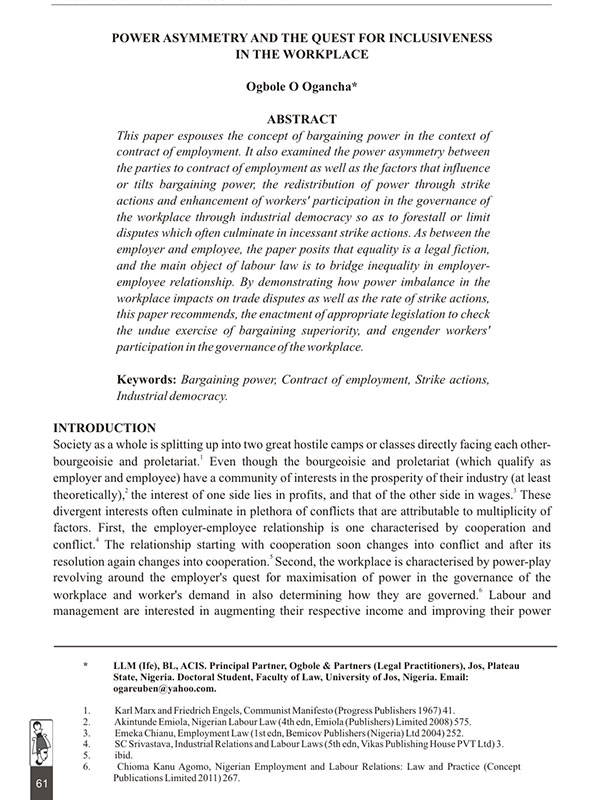
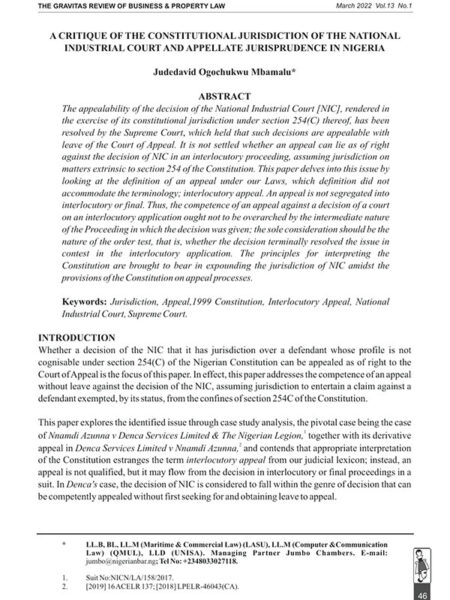
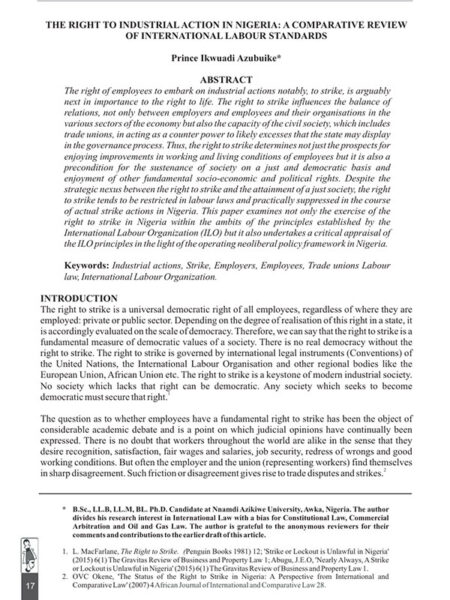
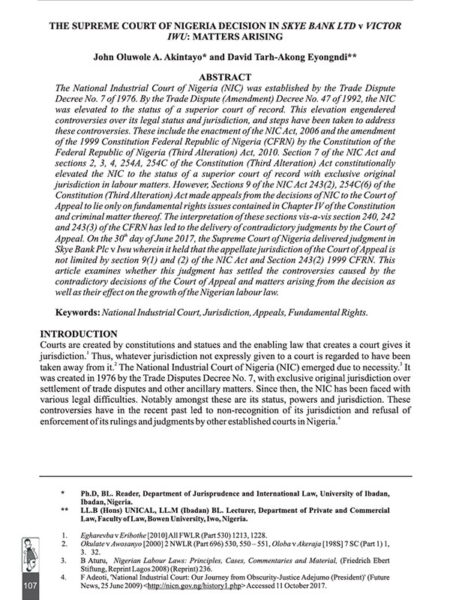
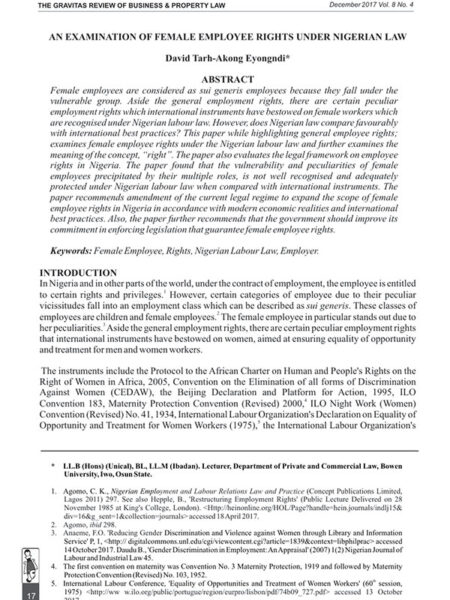


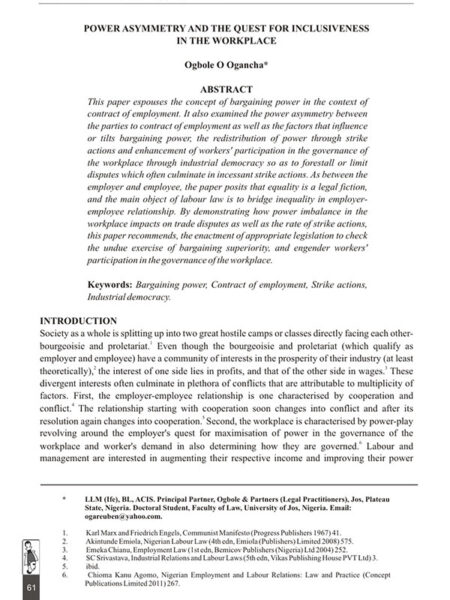
Reviews
There are no reviews yet.